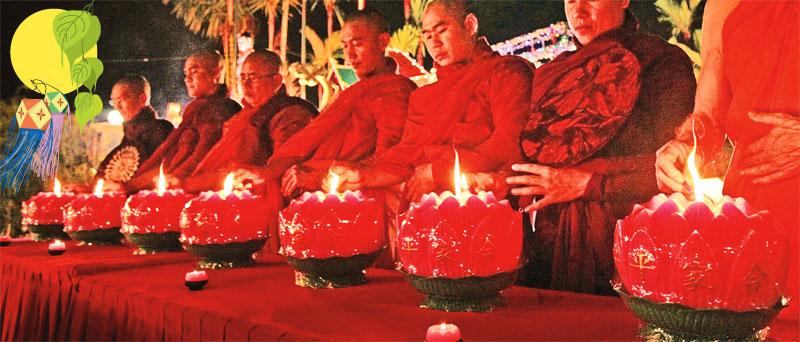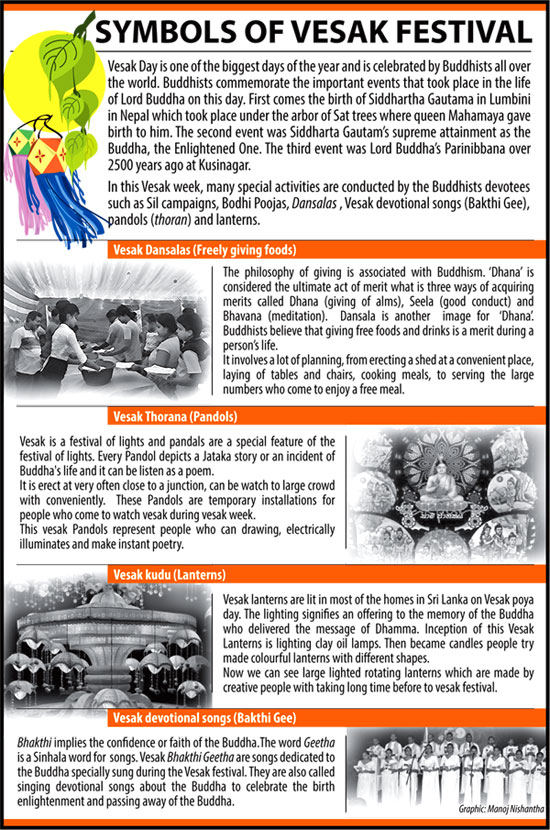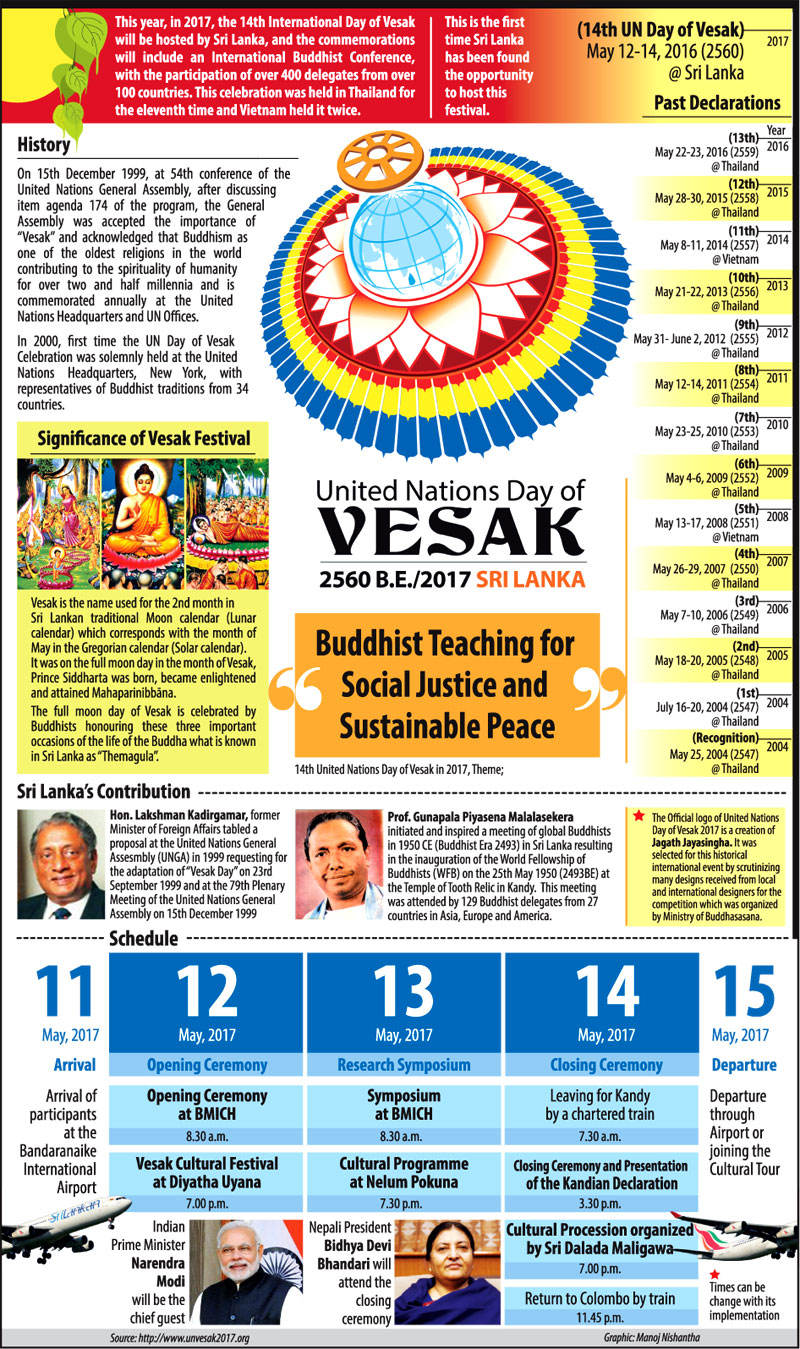
Vesak celebration falling on Full Moon Poya day in the month of May is the holiest religious event for Buddhists, especially, for Theravada Buddhists, the world over. This is because the long cherished hallowed Theravada Buddhist tradition faithfully believes that the three great events connected with the life of the Buddha occurred on three full moon days falling in the month of May. The first of these events is the birth of Prince Sidhartha Gautama, son of king Suddhodana and queen Maya, in the pleasure grove in Lumbiniya. The sacred event took place, 35 years later, when the young Prince after renouncing household life at the age of 29, and following a strenuous process of trial and error, attained Perfect Enlightenment, i.e. Buddhahood, seated under the Sacred Bodhi Tree at Gaya.
 The third is the attainment of his parinirvana, peacefully resting under the two Sal Trees in Kusinara. The Buddhists, commemorate all three events in utter solemnity experiencing serene joy, recalling to their minds the humanness as well as humility of their excellent Teacher, endowed with incomparably great qualities that elevated to the level of super human, inducing many to look up to him as the “Teacher of Gods” or as the “God of Gods”.
The third is the attainment of his parinirvana, peacefully resting under the two Sal Trees in Kusinara. The Buddhists, commemorate all three events in utter solemnity experiencing serene joy, recalling to their minds the humanness as well as humility of their excellent Teacher, endowed with incomparably great qualities that elevated to the level of super human, inducing many to look up to him as the “Teacher of Gods” or as the “God of Gods”.
The Buddha is a human Teacher who led a simple ascetic life, devoting the full 45 years of Enlightened life for the good and well being of fellow human kind, who were constantly subjected to severe predicaments. His whole mission was aimed at explaining the causes and conditions that bring about this predicament, and presenting an assured solution for the cessation of such difficult situations. His solution did not advocate the invocation of God’s help, external purification of the individual by bathing in holy waters, the purification of the unverifiable metaphysical soul by punishing the body, or indulging in a sense of gratification as some materialist teachers of his time thought. Through his own experience he realized, it was possible with human effort, human action and the individual’s inborn strength and potential to take up the challenges of life.
Being convinced through experience, Buddha, the practical, empirical teacher, worked on the premise that the individual is his own master and he is the maker of what he is. Hence, his teaching was mainly formed on personality development. To attain this, he presented a work plan constituted of eight factors, directed to cultivate three major personality aspects, namely, moral, mutual and the intellectual aspect.
Through his own self Buddha clearly demonstrated that it is by properly directing, strengthening and perfecting these three aspects that he was able to become the epitome of the perfect human being, who is an embodiment of compassion and wisdom. While the Buddha acknowledged and appreciated his followers celebrating important events in his life, his constant advice was that the best way to honour him and show reverence on him is to lead life according to the advice given by him.

